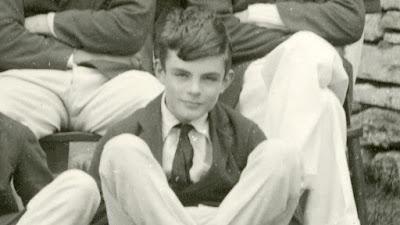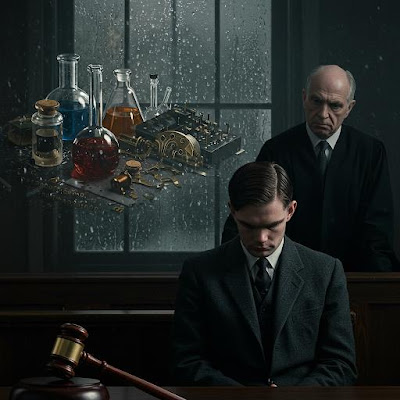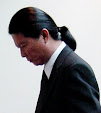Who is Alan Turing and Why He Matters?
Part 1- Cracking the Enigma Code.
 |
| The Enigma |
_etc_wartime_contemporary_photo_U-boat_photos._(12).jpg) |
| German U-boat lurking in the Atlantic |
Picture a shy, scruffy mathematician with a mind like a lightning bolt. In the dark days of World War II, when Nazi submarines were choking the Allies with unbreakable coded messages, Turing became the hero no one expected.
 |
| Bletchley Park Mansion. |
At a secret British base called Bletchley Park, he invented the Bombe—a clanking, whirring machine that smashed through the Nazis’ Enigma code. This wasn’t just a gadget; it was a game-changer.
 |
| The Bombe Machine |
 |
| The Bombe |
 |
| Bombe model at Bletchley Park |
 |
| Thousands of operators at Bletchley Park |
By cracking the code, Turing revealed enemy plans—where their U-boats lurked, when they’d strike—saving countless ships and lives. Some say his work shaved years off the war.
Why does he matter? Because this quiet genius didn’t just beat the Nazis; he showed the world what human brilliance could do against impossible odds.
Today, every time you use a computer, you’re touching his legacy—he’s the guy who started it all.
Part 2 - The Boy Who Loved Numbers
 |
| Alan aged 15 at Sherborne. |
He’s the kid who turned numbers into magic. Born in 1912 in London, little Alan was a shy, dreamy boy who didn’t fit in—except with math. While other kids played tag, he’d sit under a tree, scribbling equations, his eyes lighting up at puzzles no one else could solve. By his teens, he was cracking problems that stumped grown-ups, his brain buzzing with ideas too big for his time.
Why does he matter? Because that curious kid grew up to invent computers and break Nazi codes, all starting from a love of numbers that wouldn’t quit.
Turing’s story proves the quiet dreamer can change the world—one equation at a time.
Part 3- Inventing The Computer
 |
| Image generated with Ai for Turing |
He’s the visionary who gave us computers—and made them think. In the 1930s, Turing dreamed up the “universal machine,” a device that could solve any problem with the right instructions, laying the groundwork for every computer we use today. But he didn’t stop there. Later, he cooked up The Turing Test aka the “Imitation Game”*—a test to see if a machine could chat so cleverly you’d mistake it for a human.
Why does he matter? Because Turing didn’t just build the future; he asked if it could outsmart us.
From laptops to AI, his ideas still run our world—and keep us guessing.
Part 4 - Facing A Cruel World
 |
| Image generated with Ai. |
He’s the genius who saved millions, then got crushed by cruelty. After cracking Nazi codes in World War II, Turing should’ve been a hero. Instead, in 1952, Britain turned on him. Why? Because he was gay, and back then, that was a crime. The man who’d outsmarted Hitler was arrested, humiliated, and forced into chemical castration—hormone injections that wrecked his body and spirit.
Why does he matter? Because even when the world betrayed him, Turing’s brilliance endured. His story isn’t just about computers; it’s a gut-punch reminder of how society can fail its greatest minds—and why we fight to make it right today.
Part 5 - A Mysterious End
 |
| Image generated with Ai |
He’s the mastermind whose life ended in a riddle. In 1954, at just 41, Turing— the guy who broke Nazi codes and birthed computers—was found dead in his home, an apple laced with cyanide beside him. Suicide? Accident? Murder? No one knows. The world lost a giant, his final chapter as puzzling as the codes he cracked.
Why does he matter? Because even in death, Turing left us wondering—his mind so brilliant, his exit so haunting and how he chose to endure the pain of hormone therapy over a two-year jail sentence.
Today, every click on your keyboard echoes his genius, a legacy too big to fade.
P/s. Perhaps now you, like me, will finally begin to appreciate the movie I saw years ago but never truly understood the gravity of the story until we arrived at our ChatGPT moment.
*The Imitation Game is a 2014 American biographical thriller film directed by Morten Tyldum and written by Graham Moore, based on the 1983 biography Alan Turing: The Enigma by Andrew Hodges.






No comments:
Post a Comment